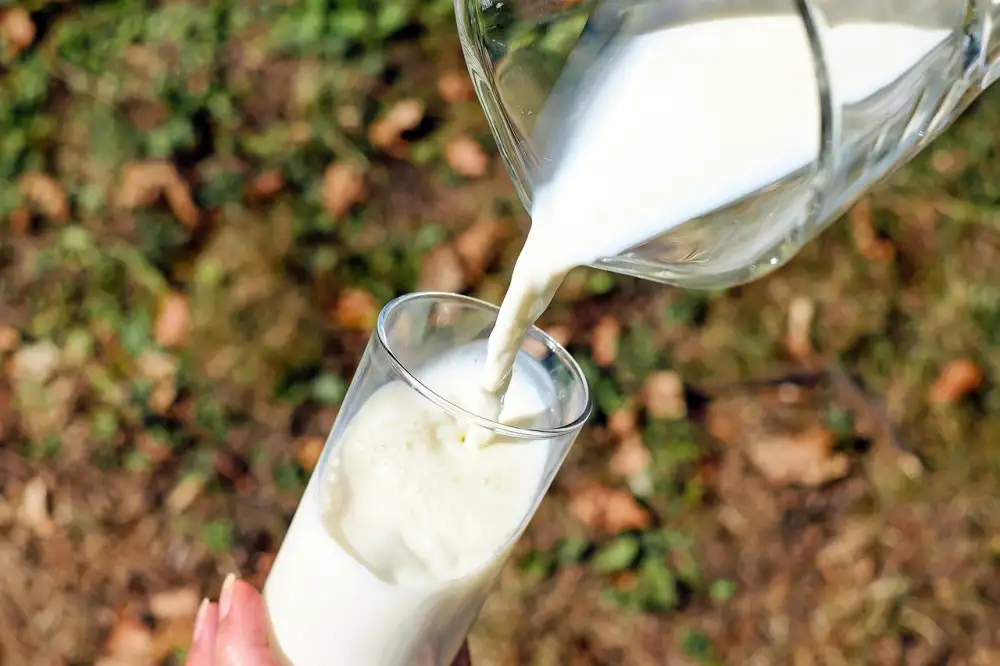Unveiling the Shelf Life Secrets: Does Almond Milk Go Bad? Find Out Now!

Almond milk has gained popularity in recent years as a dairy-free alternative that is not only nutritious but also delicious. But like any other food product, almond milk has a limited shelf life. Understanding how long almond milk lasts and the factors that affect its shelf life is essential to ensure you are consuming fresh and safe almond milk. In this article, we will delve into the secrets of almond milk's shelf life, discuss signs of spoilage, and provide tips for proper storage to help you enjoy this delightful beverage at its best. So let's dive in and uncover the mysteries behind almond milk's shelf life!
How Long Does Almond Milk Last?
How long almond milk lasts depends on various factors. Unopened almond milk, when stored properly in a cool and dry place, can last up to a month past the expiration date. Once opened, almond milk typically lasts about 7-10 days in the refrigerator. However, it is important to note that these are just general guidelines and the actual shelf life may vary depending on the brand and quality of the almond milk. It is always recommended to check for signs of spoilage before consuming.
Factors Affecting the Shelf Life of Almond Milk
The shelf life of almond milk can vary depending on several factors. One key factor is the type of almond milk you purchase. There are two main types: refrigerated and shelf-stable. Refrigerated almond milk typically has a shorter shelf life, usually lasting around 7 to 10 days after opening. On the other hand, shelf-stable almond milk can last much longer, often up to several months.
Another important factor is how the almond milk is stored. Proper storage is crucial in maintaining its freshness. Almond milk should always be kept refrigerated at temperatures below 40°F (4°C) to slow down bacterial growth and extend its shelf life. It's also essential to seal the container tightly after each use to prevent air exposure.
The quality and freshness of the almonds used in making almond milk can also impact its shelf life. Fresh almonds will result in a higher-quality product with a longer shelf life compared to almonds that have been sitting for an extended period.
Additionally, additives and preservatives present in some brands of almond milk can affect its longevity. Some brands may add stabilizers or preservatives to extend the shelf life, while others may opt for a more natural approach without these additives.
Lastly, proper handling and hygiene practices play a role in preserving the freshness of almond milk. Contaminating the product with dirty utensils or allowing it to come into contact with other perishable foods can accelerate spoilage.
By considering these factors and taking appropriate measures, you can ensure that your almond milk stays fresh for as long as possible, allowing you to enjoy it without any concerns about spoilage or safety issues.
Signs of Spoilage in Almond Milk
It is important to be aware of the signs that indicate almond milk has gone bad. One of the first indicators is a sour or off smell. If you notice a strong, unpleasant odor when you open the container, it is likely that the almond milk has spoiled.
Another sign of spoilage is a change in texture. Fresh almond milk should have a smooth and creamy consistency. If you see any lumps or clumps, or if the liquid appears curdled, it is best to discard it.
Additionally, pay attention to any changes in color. Almond milk typically has a light beige or off-white color. If you notice any discoloration, such as a darker shade or unusual streaks, it may be a sign that the milk has gone bad.
Lastly, taste can also be an indicator of spoilage. If your almond milk tastes sour, bitter, or generally unpleasant, it is likely no longer safe to consume.
Remember, consuming spoiled almond milk can lead to foodborne illnesses and should be avoided. Always check for these signs before using almond milk in your recipes or beverages.
Tips for Properly Storing Almond Milk
To ensure the longevity and freshness of your almond milk, it is crucial to store it properly. Here are some tips to help you maintain the quality of your almond milk:
1. Refrigerate immediately: After opening the carton, make sure to refrigerate the almond milk promptly. The cold temperature will slow down the growth of bacteria and extend its shelf life.
2. Use airtight containers: If you transfer almond milk from its original packaging to another container, opt for airtight ones that can prevent air exposure. Oxygen can speed up spoilage, so sealing it tightly will help preserve its freshness.
3. Avoid cross-contamination: To prevent any potential contamination, keep your almond milk away from other food items with strong odors or flavors. This will prevent the absorption of unwanted tastes and smells.
4. Store in the coldest part of the fridge: Place your almond milk in the coldest section of your refrigerator, usually on one of the shelves towards the back. This ensures a consistent temperature and helps maintain its quality for a longer period.
5. Check expiration dates: Always check the expiration date before purchasing or consuming almond milk. Using it past its expiration date can increase the risk of spoilage and potential health issues.
By following these storage tips, you can enjoy fresh and safe almond milk for an extended period. Remember to use your senses and discard any product that shows signs of spoilage or has an off smell or taste. Enjoy your creamy and nutritious almond milk worry-free!
In conclusion, it is important to understand the shelf life of almond milk in order to enjoy it fresh and safely. While almond milk can last for several weeks past its expiration date if stored properly, it is crucial to check for signs of spoilage before consuming. By following the tips for proper storage, such as refrigerating promptly and keeping it tightly sealed, you can extend the shelf life of your almond milk. Remember, freshness and safety go hand in hand when it comes to enjoying this delicious and nutritious dairy alternative. So go ahead and savor every sip of your almond milk knowing that you are doing so with confidence!
Published: 06. 01. 2024
Category: Health



